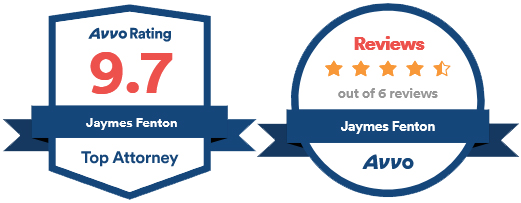Can You Defend Yourself Without a Lawyer?
 For many people, having legal representation is the best way to ensure a fair trial and positive outcome for their situation. But for some, defending themselves without a lawyer may feel like the only option. In this blog post, we’ll be taking a look at the advantages and disadvantages of representing yourself in court versus hiring an attorney, understanding the basics of legal representation, how to make smart decisions about representing yourself in court, knowing your rights during a trial or hearing, preparing for court without an attorney, how to handle cross-examination and testimony on your own, and why hiring a criminal defense lawyer is always a good idea.
For many people, having legal representation is the best way to ensure a fair trial and positive outcome for their situation. But for some, defending themselves without a lawyer may feel like the only option. In this blog post, we’ll be taking a look at the advantages and disadvantages of representing yourself in court versus hiring an attorney, understanding the basics of legal representation, how to make smart decisions about representing yourself in court, knowing your rights during a trial or hearing, preparing for court without an attorney, how to handle cross-examination and testimony on your own, and why hiring a criminal defense lawyer is always a good idea.
If you are looking to speak with a criminal defense lawyer in Milwaukee, Fenton Law is here for you. We are experts in all types of criminal defense and are here to answer your questions. Give us a call today at 4-858-6650.
What are the Advantages and Disadvantages of Defending Yourself in Court?
One of the main advantages of defending yourself in court is that it can save you money by avoiding attorney fees. Additionally, representing yourself means that you have complete control over your case and determine what strategy you want to take when defending yourself.
One of the major disadvantages of defending yourself in court without legal counsel is that you run the risk of not presenting your case properly due to a lack of knowledge or resources. Without an attorney, it can be difficult to access valuable information and resources as well as understand relevant laws and terminology needed to craft a strong defense. Additionally, representing yourself in court means that you will likely have to navigate complex legal procedures on your own which could potentially lead to an unfair trial or unfavorable verdict. In order to ensure a fair trial and positive outcome for any situation, having legal representation is almost always recommended.
Understanding the Basics of Legal Representation
Having a basic understanding of what “legal representation” means is invaluable when attempting to defend yourself in court without a lawyer. Start by researching laws relevant to your situation so that you understand the processes involved with courts and trials. Understanding terminology like “discovery” or “evidence rules” is essential too. Finally, consider attending public guidance sessions held by local law offices which will provide useful information about navigating court proceedings without legal counsel.
How to Make Smart Decisions About Representing Yourself in Court
If you decide that it’s best for you to represent yourself in court, there are some key steps that should be taken beforehand:
- Gather information regarding your case
- Review evidence
- Know all applicable laws
- Talk with witnesses
- Develop a defense strategy
- Request the necessary forms from court clerks
- Attend mandatory pre-trial meetings
- Seek out advice from those who have gone through similar proceedings
- Practice testifying before going into court
- Prepare written statements including summaries of defense arguments and conclusions etc.
- If necessary ask for additional time before trial date if more preparation needs to be done etc.
If this feels a little overwhelming, know that there are attorneys out there who are willing to help you navigate your case. If you’re in Milwaukee, Attorney Jay Fenton and our team at Fenton Law Office can help you.
Knowing Your Rights During a Trial or Hearing
When deciding whether or not you want to represent yourself in court it’s important that you understand what rights are afforded to defendants throughout proceedings—without an attorney this responsibility falls solely on you as the defendant. It is critical that individuals defend their rights—such as being allowed access to evidence used against them—to ensure they receive fair treatment during any trial or hearing they may attend while acting as their own attorney. Talking with witnesses required at trial can help tremendously during this process too since these conversations could reveal gaps in either party’s evidence which could potentially weaken their case against yours*.
*Disclaimer: This does not guarantee your favorability within courts nor does it guarantee positive outcomes.
Preparing for Court Without an Attorney
Preparing for any type of proceeding without an attorney can sometimes feel like an insurmountable task but fortunately, there are ways around it. To make this process smoother start off by researching specific laws related to your particular case so that they become familiar prior to proceedings commencing (this can also help immensely when crafting opening/closing arguments). Secondly, seek out supportive services such as friends/family members who may accompany you during any hearings (though please note they will likely not be able to speak on behalf of the defendant formally). Thirdly check local community centers often offer free assistance sessions with attorneys who specialize in certain aspects of criminal/civil law–having access to vetted professionals never hurts! Lastly, find mentors who have experience dealing with similar cases — they know tricks trade help navigate complexities of unique individual’s situations smoothly and efficiently (especially if the mentor has had past experiences same judge presiding over the current matter!).
Why Hiring a Lawyer is Such a Good Idea
Having a lawyer with you in court is strongly recommended for the best chance of success. With legal representation, you have access to knowledge and expertise that can help you navigate complex procedures and understand relevant laws. Additionally, an attorney will be able to provide valuable insight into your case that can result in a better outcome than if you were to represent yourself in court.
A good lawyer will be familiar with the justice system and the local courts, which gives them the advantage of knowing the most current procedural rules and having ties with judges and other attorneys. They are also able to provide advice on their client’s legal options and rights as well as negotiate any disputes or settlements outside of court if needed. In addition, an experienced lawyer can also find more information about your case through means such as discovery requests which would not be available otherwise.
Overall, having legal counsel is almost always the preferred option when facing criminal or civil proceedings due to their knowledge and experience in these matters. A qualified attorney can give you peace of mind that your legal rights are being represented properly so that you have a better chance at a fair trial or hearing.
Fenton Law Office is a criminal defense law firm based in Milwaukee, Wisconsin. Our office specializes in defending individuals charged with felonies and misdemeanors across a wide range of charges. Our team has extensive experience providing legal defense for cases involving DUI/OWI, drug offenses, probation revocation defense, parole violations, violent crimes, and other similar charges. We use our familiarity with the local courts to craft strong defenses aimed at protecting our clients’ rights while utilizing our knowledge and resources to achieve the best possible outcome in every case we take on. Click here to get started with Fenton Law today.

By Attorney Jay Fenton, Owner of Fenton Law Office
Jay Fenton is a top-rated criminal defense attorney in Milwaukee who goes above and beyond for his clients. He has successfully secured favorable outcomes in countless cases, from negotiating plea agreements to filing pre-trial motions and managing complex appeals. Attorney Fenton also has had tremendous success achieving not-guilty verdicts at trial. His dedication and aggressiveness make him one of the best attorneys around.




